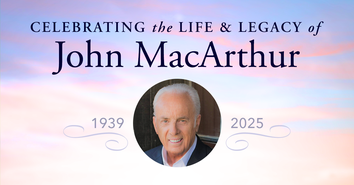Drug Czar Exposes Truth about Hollywood
Clintons Drug Czar Exposes a Truth about Hollywood
Published Jan 17, 2000

It recently came to light that the U.S. Office of National Drug Control Policy and the network television studios have come to a new and creative understanding, an Orwellian arrangement that, for all its good intentions, allows the heavy hand of government to get into the business of creating primetime television programming.
It goes something like this. The government mandates that a certain amount of time be "donated" by the networks to air Public Service Announcements on a range of topics including anti-drug and anti-alcohol messages. These PSAs, from the networks’ perspective, represent a massive loss of advertising revenue. One bright executive realized his network could save a lot of money by proposing that anti-substance abuse messages be worked directly into television programs themselves. This would free the network from the requirement to run separate ads, so they could instead sell the airtime to paying customers.
Amazingly the Drug Czar’s office went for it. So lately, viewers of popular shows like Beverly Hills 90210 have been hit with a healthy dose of admittedly good messages.
What’s the problem? Well, civil libertarians have rightly focused on a big one -- the weird notion of a government agency directing the content of television programming. Obviously, drugs and booze are stupid -- as anybody who's watched an episode of Cops or VH-1’s Behind the Music knows -- and smart people stay as far away from both as possible. But once we start down this path, where will it stop? Will a Gore administration find the AIDS Czar demanding certain story lines from Touched by an Angel? Will the Secretary of Education demand that public schools be presented in a positive light? Will the Secretary of Agriculture demand that more sitcoms be set in farming communities?
Another immediate question is whether we want federal bureaucrats making our entertainment. Critics rightly panned J. Edgar Hoover’s attempts to control the portrayal of the FBI in television programming in the 1960s. This is no different.
The more interesting bit, though, is the utter hypocrisy surrounding the issue. After all, this is mere entertainment. And -- as cultural critics from the political and social left have told us for the last two decades -- we know that entertainment, whether music, television, or film, has no effect on behavior.
When Vice President Dan Quayle gave his now famous Murphy Brown speech in San Francisco in 1992, his suggestion was that a TV sitcom that positively portrayed a woman who chose to bring a child into the world without marrying its father would encourage millions of young women to do the same. He was roundly criticized for the idea. How ludicrous to believe that the messages given off by a sitcom could affect the behavior of the masses who watch.
A few years later, the Atlantic Monthly, in a now famous cover story, proclaimed that Quayle was right. Now, the latest moves by the Drug Czar and the broadcast television industry should finally put to rest the truly ludicrous notion that media has no affect on behavior.
It’s a moment of unintended candor. The revelation of this cozy arrangement shows what the entertainment industry really feels about its work. It is, in fact, in the business of shaping minds and setting cultural agendas. Industry leaders believe in it so strongly that they convinced Drug Czar Barry McCaffrey he could more effectively get across his anti-drug message by working it into their programming.
They’re right, too. Which do you think more effective -- a 30-second spot featuring a well-endowed actress throwing a fit in her kitchen and breaking things with a frying pan to show what drugs to do a brain, or 90210 star Luke Perry struggling to regain control of his life after experimenting with drugs? It is, of course, the drama of the latter, which allows the viewer to experience the pain and suffering that drugs always bring.
A big untruth has been exposed -- media affects behavior and Hollywood knows it.
The only question now is whose values will shape the programming that comes out of Hollywood, and how those values will influence the ideals and actions of an entire generation of Americans.
One point is clear. Hollywood will continue to reflect and spread the ideas that are held by its writers, producers, and actors. And if people of faith continue to send their most passionate, talented, bright, and able kids into "full-time service" as priests, nuns, pastors, ministers, rabbis, missionaries, and youth workers -- while simultaneously discouraging them from entering culture-shaping careers in television, music, the arts, the written word, and film -- the cultural output of Hollywood will continue to lampoon everything they hold dear.
Office of National Drug Control Policy
It goes something like this. The government mandates that a certain amount of time be "donated" by the networks to air Public Service Announcements on a range of topics including anti-drug and anti-alcohol messages. These PSAs, from the networks’ perspective, represent a massive loss of advertising revenue. One bright executive realized his network could save a lot of money by proposing that anti-substance abuse messages be worked directly into television programs themselves. This would free the network from the requirement to run separate ads, so they could instead sell the airtime to paying customers.
Amazingly the Drug Czar’s office went for it. So lately, viewers of popular shows like Beverly Hills 90210 have been hit with a healthy dose of admittedly good messages.
What’s the problem? Well, civil libertarians have rightly focused on a big one -- the weird notion of a government agency directing the content of television programming. Obviously, drugs and booze are stupid -- as anybody who's watched an episode of Cops or VH-1’s Behind the Music knows -- and smart people stay as far away from both as possible. But once we start down this path, where will it stop? Will a Gore administration find the AIDS Czar demanding certain story lines from Touched by an Angel? Will the Secretary of Education demand that public schools be presented in a positive light? Will the Secretary of Agriculture demand that more sitcoms be set in farming communities?
Another immediate question is whether we want federal bureaucrats making our entertainment. Critics rightly panned J. Edgar Hoover’s attempts to control the portrayal of the FBI in television programming in the 1960s. This is no different.
The more interesting bit, though, is the utter hypocrisy surrounding the issue. After all, this is mere entertainment. And -- as cultural critics from the political and social left have told us for the last two decades -- we know that entertainment, whether music, television, or film, has no effect on behavior.
When Vice President Dan Quayle gave his now famous Murphy Brown speech in San Francisco in 1992, his suggestion was that a TV sitcom that positively portrayed a woman who chose to bring a child into the world without marrying its father would encourage millions of young women to do the same. He was roundly criticized for the idea. How ludicrous to believe that the messages given off by a sitcom could affect the behavior of the masses who watch.
A few years later, the Atlantic Monthly, in a now famous cover story, proclaimed that Quayle was right. Now, the latest moves by the Drug Czar and the broadcast television industry should finally put to rest the truly ludicrous notion that media has no affect on behavior.
It’s a moment of unintended candor. The revelation of this cozy arrangement shows what the entertainment industry really feels about its work. It is, in fact, in the business of shaping minds and setting cultural agendas. Industry leaders believe in it so strongly that they convinced Drug Czar Barry McCaffrey he could more effectively get across his anti-drug message by working it into their programming.
They’re right, too. Which do you think more effective -- a 30-second spot featuring a well-endowed actress throwing a fit in her kitchen and breaking things with a frying pan to show what drugs to do a brain, or 90210 star Luke Perry struggling to regain control of his life after experimenting with drugs? It is, of course, the drama of the latter, which allows the viewer to experience the pain and suffering that drugs always bring.
A big untruth has been exposed -- media affects behavior and Hollywood knows it.
The only question now is whose values will shape the programming that comes out of Hollywood, and how those values will influence the ideals and actions of an entire generation of Americans.
One point is clear. Hollywood will continue to reflect and spread the ideas that are held by its writers, producers, and actors. And if people of faith continue to send their most passionate, talented, bright, and able kids into "full-time service" as priests, nuns, pastors, ministers, rabbis, missionaries, and youth workers -- while simultaneously discouraging them from entering culture-shaping careers in television, music, the arts, the written word, and film -- the cultural output of Hollywood will continue to lampoon everything they hold dear.
More . . .
The Washington Post report on this story.Office of National Drug Control Policy
Originally published January 17, 2000.







